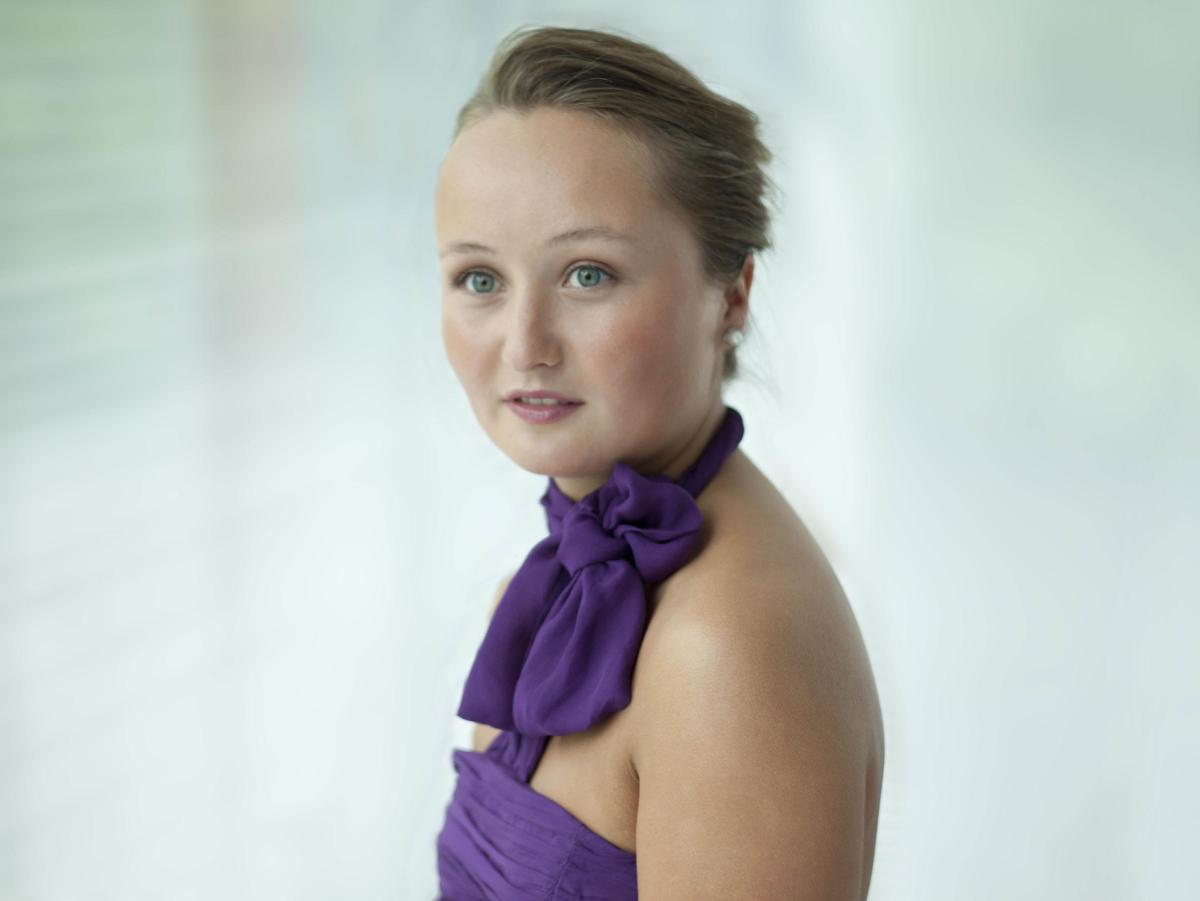Julia Lezhneva. Image supplied by Hobart Baroque.
If you’re looking for notices about 24 year-old Russian Baroque powerhouse, Julia Lezhneva, you need go no further then the local skate park.
‘The minute you play a YouTube clip to anybody – it doesn’t matter if it’s the tattooed kid in the street here – or a Hobart matron – they fall in love with it because she’s sweet and young with a voice that’s absolutely one in a million,’ says Hobart Baroque Festival Director, Leo Schofield.
Of course, you could also consult the prestigious 2013 Echo Klassik Awards – at which Lezhneva was honoured with Best Newcomer of the Year for her latest CD, Allelulia. Or look to her recording contract with Decca or her first prize at the Paris International Opera Competition in 2010.
Julia Lezhneva has been winning accolades since she was 11 years old and began studying solo vocal lessons at Moscow’s Grechaninov School. It was there that Lezhneva’s teachers introduced her to the sacred and oratorial music of Bach and Handel on CD.
‘I fell totally in love with Baroque music,’ she says. ‘Nothing was touching me so much as that music. I think those CDs were quite rare, since in Russia at that time there was barely any interest in Baroque music.’
‘Since those times, this music became part of myself, my soul – it is not just love, it is something more. I think my voice has somehow also adapted by listening to this music, and the way this music was performed.’
Lezhneva’s early training exposed her potential as a coloratura soprano, complete with the runs, leaps and trills that many of us confine to the shower. ‘Coloratura soprano voice means rather different things,’ she explains. ‘It is usually known as a voice which is not only agile, but possesses extremely high notes.’
‘My voice is quite different – it is based central, and I have quite a big range, but it is indeed very agile, so at the beginning my teachers were suggesting to me I might become a coloratura mezzo singer.’
‘However, I feel in the last years my high register has been starting to mature more, so I think it would be right to describe my voice as simple as “Soprano,”’ she says.
On March 30, Lezhneva will make her Australian orchestral debut with the Tasmanian Symphony Orchestra at Hobart Baroque. This will be the only occasion Australian audiences have to witness Lehzneva in collaboration with a symphony orchestra, before she heads back to Europe for the spring season.
Lezhneva brings her prodigious talent to the Hobart’s Federation Hall Stage with a program which promises miracles.
‘The whole concept of the concert is chronological. We aim to show the development – shall we say – the stylistic evolution from Baroque to early Mozart. I can definitely say that the Mozart’s motet “Exsultate, jubilate” is sort of alma mater for me. I have been studying this piece since my early teenage, school years and still – every time I perform, it sounds so fresh and new – absolutely miracle music!’
There are multiple challenges to early celebrity, not least when beauty is a factor. For Lehzneva, however, age brings increased opportunity.
‘I think all performers get better when growing and after a certain level of experience you become more confident while performing,’ she says.
‘I started to believe more in myself when I won my first competition at 16 and sang a Vivaldi aria. But we – singers – need to study every day. The process of singing is constant studying – I think this should never stop in one’s artistic life.’
According to Leo Schofield, the audience is in for a big surprise: ‘Lehzneva is going to be the big star of the next ten years at least. She’s going to show them what Joan Sutherland sounded like when she started singing.’
Julia Lezhneva with the Tasmanian Symphony Orchestra
Federation Hall Stage, HobartSunday 30 March
For more information visit Hobart Baroque





